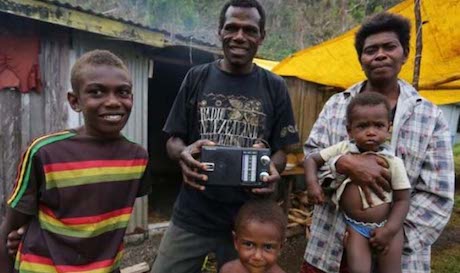Last year the Australian Broadcasting Corporation (ABC) pulled the plug on its shortwave service to the Pacific region.
Some of the ABC’s former shortwave frequencies are now being used by China Radio International, the country’s state-owned overseas broadcaster.
Some have argued that, in the age of the internet, shortwave radio is no longer important.
But many isolated communities in the Pacific still do not have reliable and effective internet connections.
Even where the internet is available, many families do not have a device of any kind that enables them to connect to it.
Dr Mollgaard from the School of Communication Studies at Auckland University of Technology (AUT) says services such as RNZ Pacific and Radio Australia have always demonstrated great propensity to stimulate democratic life and uphold media freedoms.
They also advance national interests by enhancing diplomatic positions and “bottom-line” considerations such as good trade relations he says.
The Pacific Media Centre (PMC) based in the AUT says the closure of the ABC’s shortwave service in the South Pacific “is a sorry loss to people and cultures – as we know them well from the accumulation of studies and from our own media production exercises at this centre.”
In a public submission to the Australian government review of broadcasting to the region, the PMC states that the situation has impelled Radio New Zealand to “stretch their resources to do more, to ‘make up’ for what has been removed.”
Radio New Zealand Pacific (formerly known as RNZI) broadcasts in digital and analogue shortwave to radio stations and individual listeners across the Pacific region.
Around twenty Pacific radio stations relay RNZ Pacific material daily, and individual short-wave listeners and internet users across the world tune in directly to RNZ Pacific content.
RNZ Pacific broadcasts primarily in English but bulletins in selected Pacific languages can be heard in breakfast sessions.
Source
Additional readingNews category: Asia Pacific.




